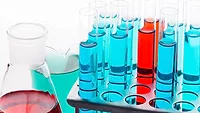EFSA Updates List of Microbial Agents Intended for Food and Feed Presumed to be Safe

Image credit: Prawny via Pixabay
The European Food Safety Authority (EFSA) recently updated its list of qualified presumption of safety (QPS)-recommended microbiological agents intentionally added to food or feed. QPS is a regularly updated generic pre-valuation of the safety of microorganisms, based on an assessment of published data for each agent, with respect to its taxonomic identity, the body of relevant knowledge, and safety concerns.
The list of microorganisms is maintained and reevaluated approximately every 6 months. The present list represents microbiological agents notified to EFSA between October 2022 and March 2023. Within this period, 38 notifications were received by EFSA, of which 28 were proposed for evaluation in feed; five for use as food enzymes, food additives and, flavorings; and five as novel foods. Only four microorganisms were evaluated in the current statement, because 20 were already deemed QPS and 14 were types of microorganisms (eight filamentous fungi, four Enterococcus faecium, and two Escherichia coli) that are excluded from QPS.
In the current period, four notifications were evaluated, none of which were recommended for QPS:
- Anaerobutyricum soehngenii due to a lack of scientific information about their use in food and feed applications
- Stutzerimonas stutzeri (formerly Pseudomonas stutzeri) due to a lack of scientific information about their use in food and feed applications
- Nannochloropsis oculata due to safety concerns and a lack of scientific information about human and animal exposure to the microorganism through the food and feed chains
- DSM 11798, an unnamed strain of bacterium isolated from bovine rumen and intended to degrade trichothecene mycotoxins present in feed, due to its classification as a strain rather than a species making it unsuitable for QPS.
The list also encompasses a reassessment of microorganisms previously recommended for QPS and their qualifications. Based on an assessment of articles published between July and December 2022, no new information was found that would affect the QPS status or the qualifications for microorganisms currently on the QPS list.
Looking for quick answers on food safety topics?
Try Ask FSM, our new smart AI search tool.
Ask FSM →








